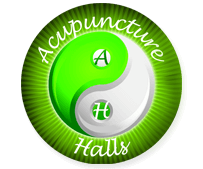
Photo credit to freepik.com
Constipation is a common digestive issue that affects millions of people worldwide. Characterized by infrequent bowel movements, difficulty passing stools, and abdominal discomfort, constipation can significantly impact one’s quality of life. While conventional treatments such as dietary changes, over-the-counter laxatives, and increased hydration often provide relief, alternative therapies like acupuncture are gaining recognition for their potential benefits in managing this condition.
Understanding Constipation and Its Causes
Constipation is not a disease but rather a symptom of an underlying issue. It may result from various factors, including:
- Dietary habits: A low intake of fiber and insufficient water consumption can slow digestion.
- Lifestyle factors: Sedentary behavior and lack of physical activity can contribute to sluggish bowel movements.
- Medications: Certain drugs, including opioids, antidepressants, and antacids containing calcium or aluminum, can cause constipation.
- Underlying health conditions: Disorders such as irritable bowel syndrome (IBS), hypothyroidism, and diabetes can disrupt normal bowel function.
- Stress and mental health: Psychological factors like stress and anxiety can negatively affect digestive health.
What is Acupuncture?
Acupuncture is a traditional Chinese medicine (TCM) practice that involves inserting thin needles into specific points on the body, known as acupoints. This therapy is based on the concept of balancing the body’s vital energy, or “qi” (pronounced “chee”), which flows through pathways called meridians. By stimulating these acupoints, acupuncture aims to restore harmony within the body and promote self-healing.
How Acupuncture May Help with Constipation
Acupuncture is believed to regulate digestive function by:
- Stimulating the nervous system: Needling certain acupoints may activate nerves that influence the muscles of the gastrointestinal tract, promoting bowel movements.
- Improving blood circulation: Enhanced circulation to the digestive organs can aid in nutrient absorption and waste elimination.
- Reducing stress: Acupuncture may help alleviate stress and anxiety, which are known to disrupt normal digestion.
- Balancing gut motility: It can help regulate the speed of digestion, whether slowing down overactive bowels or stimulating sluggish ones.
Key Acupoints for Constipation Relief
Practitioners often target specific acupoints associated with digestive health, including:
- Stomach 25 (Tianshu): Located on the abdomen, this point is often used to treat constipation and abdominal pain.
- Large Intestine 4 (Hegu): Found on the hand, this point is believed to stimulate intestinal function.
- Spleen 15 (Daheng): Positioned on the abdomen, this acupoint is linked to promoting bowel movements.
- Conception Vessel 6 (Qihai): Located below the navel, it is thought to support overall digestive health.
Evidence Supporting Acupuncture for Constipation
Scientific studies have investigated the efficacy of acupuncture in treating constipation, with promising results:
- Chronic constipation: A 2016 study published in Annals of Internal Medicine found that acupuncture was significantly more effective than sham acupuncture in improving stool frequency and quality in patients with chronic functional constipation.
- Irritable bowel syndrome (IBS): Research in the Journal of Gastroenterology suggests that acupuncture can alleviate constipation-predominant IBS by reducing abdominal pain and improving stool consistency.
- Postoperative constipation: Studies indicate that acupuncture may help manage constipation resulting from surgical procedures or anesthesia by enhancing gastrointestinal motility.
What to Expect During an Acupuncture Session
If you’re considering acupuncture for constipation, here’s what a typical session might involve:
- Initial consultation: The practitioner will assess your medical history, symptoms, and overall health.
- Needle insertion: Thin, sterile needles are inserted into specific acupoints. You may feel a slight tingling or warm sensation.
- Relaxation period: The needles are typically left in place for 20-30 minutes while you relax.
- Follow-up sessions: Depending on the severity of your condition, multiple sessions may be recommended.
Combining Acupuncture with Lifestyle Changes
For optimal results, acupuncture should be complemented by healthy lifestyle practices, including:
- Diet: Increase your intake of fiber-rich foods such as fruits, vegetables, and whole grains.
- Hydration: Drink plenty of water to support digestion.
- Exercise: Engage in regular physical activity to stimulate bowel function.
- Stress management: Practice mindfulness, yoga, or meditation to reduce stress levels.
Safety and Considerations
Acupuncture is generally considered safe when performed by a licensed and experienced practitioner. However, it may not be suitable for everyone. Consult your healthcare provider before starting acupuncture if you:
- Have a bleeding disorder or are taking blood-thinning medications.
- Are pregnant, as certain acupoints may induce labor.
- Have a fear of needles or a history of fainting during medical procedures.
Conclusion
Acupuncture offers a holistic and natural approach to managing constipation by addressing its underlying causes and promoting overall digestive health. While more research is needed to fully understand its mechanisms and efficacy, many individuals find relief through this ancient therapy. If conventional treatments have not resolved your constipation, acupuncture may be worth exploring as a complementary option. Always consult with a qualified healthcare professional to ensure it’s the right choice for you.
Visit the Acupuncture Halls clinic in San Juan Capistrano, California, if you’re interested in trying acupuncture for constipation relief. You can get guidance on your health concerns from a licensed acupuncturist at the clinic. To make an appointment, use this form or call 949-510-6333.
